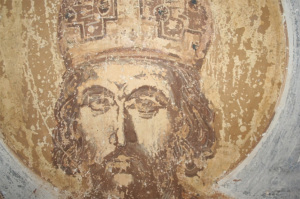Egypt's Famous Convert Still In Hiding, A Year Later
Egypt's most well-known convert to Christianity is still hiding a year after he filed the landmark case to become the first Egyptian Muslim to sue the government for rejecting his application to officially change his religion.
Mohammed Ahmed Hegazy, 25, had lost his case in January when an Egyptian judge ruled that a Muslim who converted to Christianity cannot legally change his religious status.
Now, eight months after his case was closed and a year after he filed the case, Hegazy is still hiding for his life.
Since Jan. 29 when the court ruled against him, Hegazy and his wife and baby daughter has had to move five times, according to the persecution watchdog agency, Compass Direct News.
"The verdict for my case was discriminatory [on the part] of the judge," Hegazy told Compass in an interview last month. The judge had based his decision on Islamic law that says someone can convert "up," or to more recent religions, such as from Judaism and Christianity to Islam, but not vice versa.
But even after the media stopped reporting on his case, Hegazy said he still remains a target – as all converts do – of Islamic militants.
During the trial, Hegazy's face was splattered across TV channels and newspapers, making him easy to recognize to any extremists.
"The most difficult thing for me is that the lives of my wife and daughter are in danger all the time," Hegazy said.
He recalled last October that a friend had called and said one of his lawyers had given authorities his address and he should quickly move.
Hegazy and his family moved immediately and within a day the fundamentalists came to attack them. The extremists camped around his former house for several days and set fire to the apartment next door to his, killing the female resident inside.
The female neighbor was his wife's best friend who had helped them during their difficult time in hiding.
"The church denied that she was killed, and it was never reported publicly," he said.
Hegazy dreams that he and his family can leave the country someday, but they do not have passports. Obtaining passports would require them to go back to their hometowns where Hegazy says they will be killed as soon as they arrive.
"Even if it's not family, others will do it, so I can't take that risk," he said.
A convert is "stuck" between the pressure from an Islamic government, Islamic society, and a weak church, Hegazy said.
He doesn't think his case alone can be resolved, but thinks a change is possible if Egyptian converts overseas and in Egypt filed a joint case.
Human rights groups also need to push harder for convert cases, he said.
Egypt has the largest Christian population in the Middle East, which makes up about 10 percent of the country's population.





























